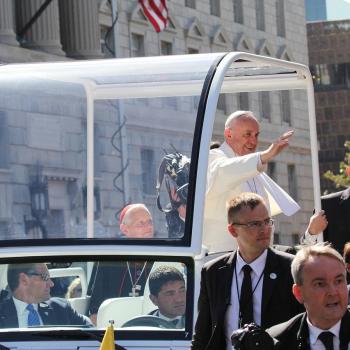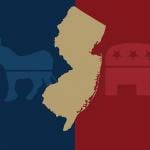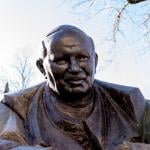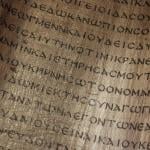ERIN IN MARYLAND ASKS:
What does a new pope mean to the Muslim community?
THE GUY ANSWERS:
Erin posted this great question just before Pope Francis was elected. At this early stage we know nothing about what his policy toward Islam might be or how the Muslim populace will view him. If Muslim relations had been important, presumably the cardinals would have picked a pope from Africa, the venue for continual Muslim-Christian conflict, whereas Islam is rare in Francis’ Latin America. The electors had other concerns (see below).
That said, Catholicism and Islam are rivals that each claim roughly a billion souls, and Francis can hardly avoid the topic. For one thing, Catholicism’s Second Vatican Council directed the church to engage with non-Christian faiths and a Vatican department is devoted to that task. For another, much of the worst persecution of Christians exists in various Muslim lands, ranging from total prohibition of churches in Saudi Arabia to terror bands that murder parishioners attending worship in Nigeria.
According to the U.S. Department of State’s religious freedom commission, these member states of the Organization of the Islamic Conference are currently “countries of particular concern” on religious persecution: Egypt, Iran, Iraq, Nigeria, Saudi Arabia, Sudan, Tajikistan, Turkey, Turkmenistan, and Uzbekistan, while Afghanistan, Indonesia, and Somalia are on the commission’s “watch list.” Since Francis led Argentina’s Jesuits during the 1976-83 “Dirty War” when the military kidnapped or murdered as many as 30,000 victims, he has ample experience with the impossible intricacies of dealing with tyranny.
Francis’ predecessor Benedict XVI famously provoked Muslim protests and mayhem in 2006, the year after his papacy began. The cause was an academic lecture on “faith and reason” at the University of Regensburg, Germany, where Benedict had been a vice president and theology professor. The pope cited a 14th century dialogue between Byzantine Emperor Manuel II and a Persian Muslim. He quoted Manuel’s contention that the new things in Muhammad’s religion were “only evil and inhuman,” in particular forcible conversions and violence “incompatible with the nature of God.” The pope said Manuel spoke with a startling “brusqueness that we find unacceptable” and he did not endorse the emperor’s words. Nonetheless, Muslims were deeply offended, and Francis is unlikely to take such a provocative approach.
[UPDATING: In a March 22 speech to diplomats, Francis stated, “It is not possible to build bridges between people while forgetting God. But the converse is also true: it is not possible to establish true links with God, while ignoring other people. Hence it is important to intensify dialogue among the various religions, and I am thinking particularly of dialogue with Islam. At the Mass marking the beginning of my ministry, I greatly appreciated the presence of so many civil and religious leaders from the Islamic world.”]
If not Islam, what was on the cardinals’ minds as they chose a pope? Surely one pressing item was cleanup of the Vatican, which would consume more than Francis’ lifetime. History’s first Latin American pope will be expected to confront five major challenges in his home region, which claims the world’s largest Catholic population: widespread poverty, unstable and oppressive regimes, quasi-Christian paganism, secularization, and growing strength of Protestantism and especially Pentecostalism. Historian Philip Jenkins observes in the Christian Century magazine that Brazil, the nation with the world’s largest nominal Catholic flock, faces a constantly shifting, three-sided struggle among its Pentecostals, secularists, and Catholics. “Of the three groups the Catholics are undoubtedly the weakest because the acute shortage of priests has so reduced the church’s strength on the ground.” Meanwhile, the U.S. cardinals will hope the papacy’s first native Spanish speaker in modern times will strengthen bonds with Hispanic immigrants who are their churches’ growing edge.












